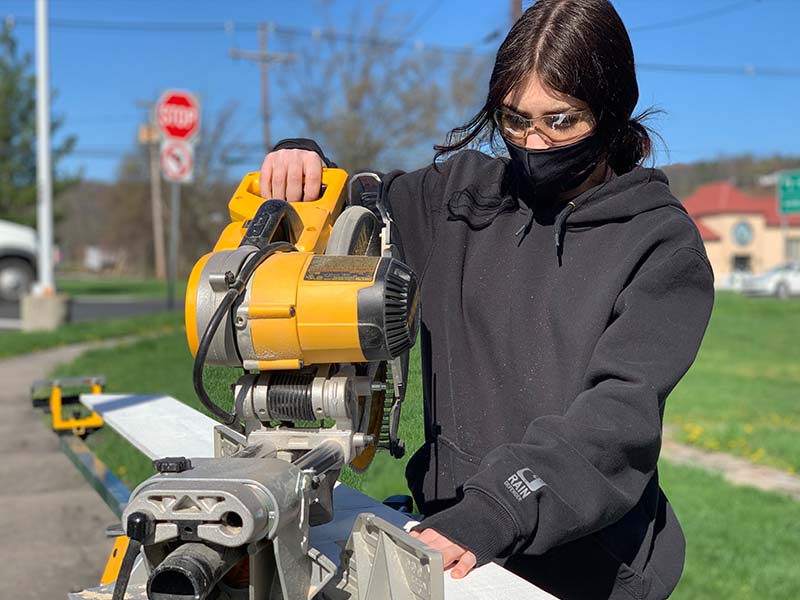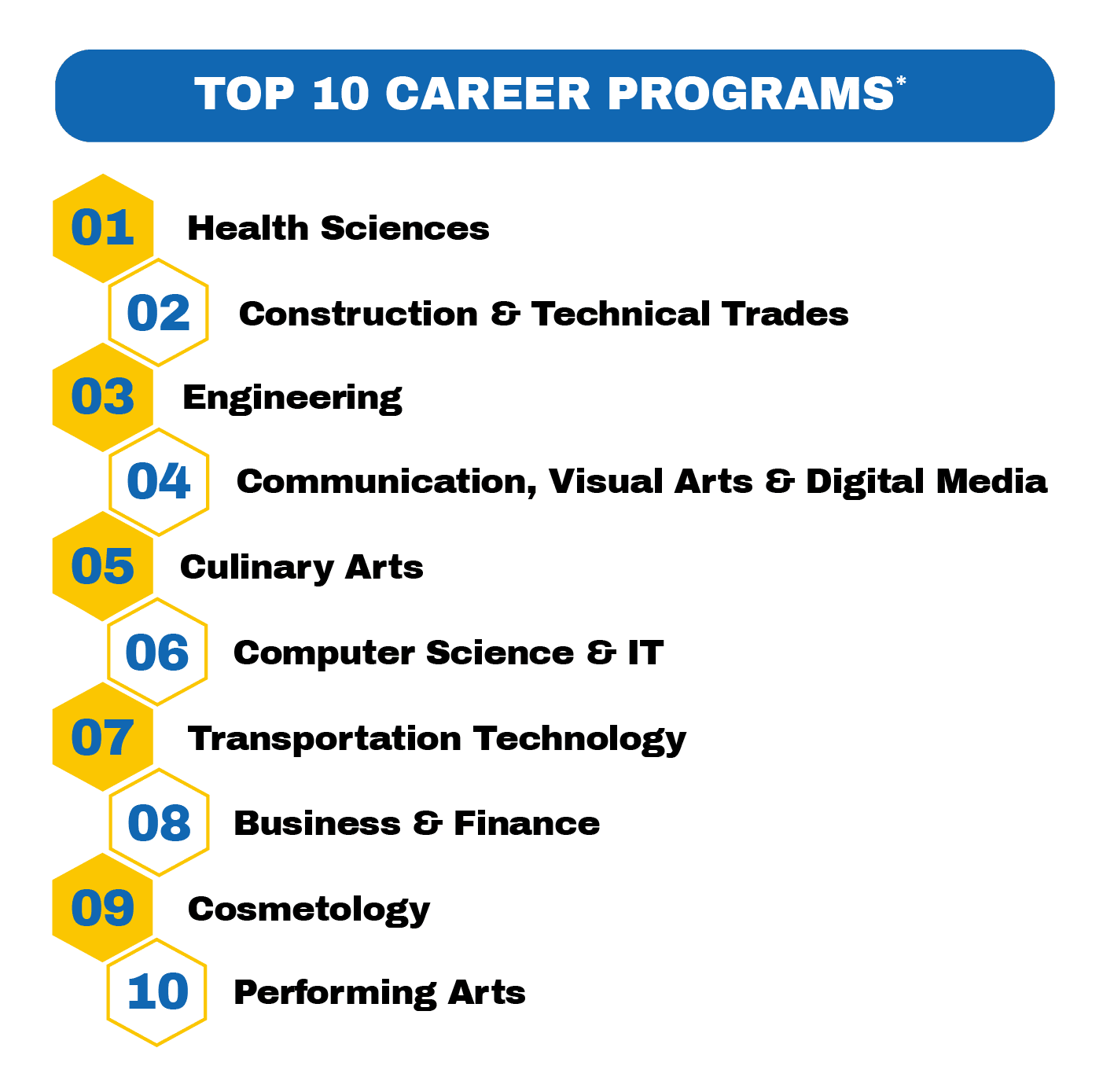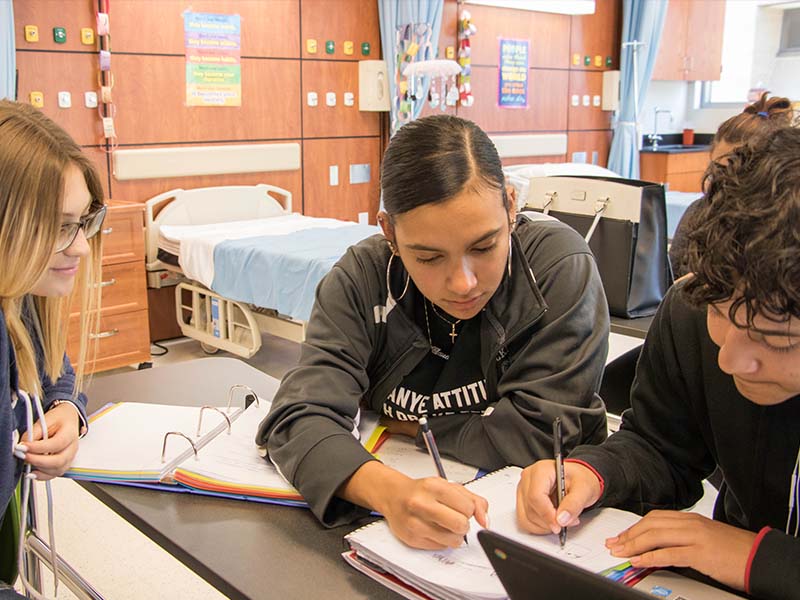New Jersey county vocational-technical schools prepare career-focused high school students for both college and careers. The more than 35,000 NJ county vocational-technical high school students are as diverse as their aspirations. They are exploring careers as automotive technicians and architects, chefs and computer programmers, dancers and doctors, engineers and electricians, physicists and plumbers, and more, through dozens of innovative career programs offered at our schools.

NJCCVTS spotlight on high school programs
35,000+ high school students
More than 60 schools in all 21 NJ counties
Over 175 career programs for every interest
High school graduation rate 8 points above the state average
Over 70% of graduates attend a two- or four-year college
9,600+ graduates earn industry-valued credentials
15,000+ students take classes eligible for college credit, with some earning enough for an associate degree

Are county vocational-technical schools free public schools?
Yes. New Jersey county vocational-technical schools are a county-wide shared service funded by the county, local taxes, and state and federal aid. There is no cost to families for tuition or transportation.
Every student has the legal right to apply for admission to the county vocational-technical school in their county of residence. If accepted, the student’s home school district is required by law to pay any tuition charged by the vocational-technical school and to provide transportation for the student. (NJSA 18A:54-20.1)
Can my child go to college if they attend a county vocational-technical school?
Absolutely! New Jersey’s county vocational-technical schools prepare students for college and careers. Statewide, more than 77 percent of county vocational-technical school graduates pursue post-secondary studies at colleges, universities, or advanced technical schools.
College admissions officers understand the value of career and technical education, and many graduates are accepted at prestigious and highly competitive colleges and universities.
Thanks to partnerships with colleges and universities, many students get a head start on higher education by taking college classes and earning college credits while still in high school.
Do county vocational schools offer the same academic courses as traditional high schools?
Yes. Students graduating from NJ county vocational-technical schools have the same graduation requirements and earn the same diploma as all other high school graduates in the state.
In addition to college readiness, students gain the added advantage of exciting career and technical education programs that expose them to a wide array of career pathways and develop the skills and abilities valued by employers. County vocational-technical schools have high graduation rates and low drop-out rates. Classes are small, and in many programs, students have the opportunity to earn college credits and industry certifications while still in high school.
Most vocational-technical schools are full-time high schools that integrate career and technical education programs with a full range of academic and extra-curricular offerings, including AP and honors courses. Students enrolled in shared-time programs take most of their academic courses at their home high school.
Who attends county vocational-technical schools?
More than 35,000 secondary school students with diverse backgrounds and equally varied career aspirations are currently enrolled in NJ county vocational-technical schools.
Career and technical education, which incorporates hands-on learning and strong academics, appeals to students of all interests and abilities. Research shows that most young people learn best when the relationship between what they are studying and its relevance to their lives and career goals is clear.
What kinds of programs do New Jersey county vocational-technical schools offer?
The schools offer a wide variety of rigorous, hands-on learning opportunities using state-of-the art technology to prepare all types of students for college and careers. All counties offer full-time, and sometimes shared-time, career and technical education programs in a broad range of fields, such as health sciences, construction trades, digital media and graphic design, culinary arts, engineering, law and public safety, business and finance, information technology, auto technology, and cosmetology. New program areas include advanced manufacturing, global logistics, computer-assisted design (CAD), agricultural sciences, and sustainability.
Some counties have specialized career academies in fields like engineering, information technology, business and finance, health sciences, and visual and performing arts.
Click on “Programs” at the top of this website to learn more about each offering.
Do county vocational-technical schools have extracurricular activities?
Yes. All full-time schools offer a range of activities such as student council, yearbook, drama club, music groups, language clubs, community service clubs, and National Honor Society. They also sponsor student career and technical organizations, like Future Business Leaders of America (FBLA), Health Occupation Students of America (HOSA), and SkillsUSA.
Can my child participate in high school sports if he or she attends a county vocational-technical school?
Yes. Many full-time county vocational-technical schools have teams in a variety of sports; but if the county vocational-technical school does not offer sports, or the particular sport your child is involved with, a student can participate in the home district’s teams.
Transportation is not provided to home high school sports.
How does my child apply to a county vocational-technical school?
The application process varies by county and program. To get started, contact your child’s guidance counselor and find your school to obtain more information about the vocational-technical school programs in your county.
For four-year, full-time programs, applications must be submitted in the fall of eighth grade. Start early — districts hold open-house sessions in the fall. Attending an open house may be a mandatory requirement for application. For half-day, shared-time programs for grades 11 and 12, students may apply during their sophomore or junior years of high school.
Each county vocational-technical school board of education has its own admissions policy, which is posted on the district website. By law, the county district admissions policy must provide equal educational opportunity without regard to race, ethnicity, gender, religion, disability, or economic status. Admissions decisions may consider a student’s grades, standardized test scores, attendance, and other factors. In some districts, an admissions test and/or an interview may also be required, and most performing arts programs require an audition.
For more information on the admissions requirements for the school in your county, find your school.

Get more out of high school!
Vocational-technical school graduates gain a significant jump-start on their pathway toward career success and fulfillment. They benefit from real-world work experiences and opportunities to earn college credits.
In addition to gaining technical skills, industry certifications, and college experiences, they develop workplace skills that all employers value, like teamwork, problem-solving, responsibility, and creative thinking.
View our extensive list of colleges and universities partnering with our county vocational-technical schools to enhance students’ learning experiences.

Pursue your interests, start your career journey!
Each county vocational-technical school offers a unique mix of career and academic programs to meet students’ distinct goals, from furthering their education at a college or university to pursuing employment directly after high school.
Many schools offer specialized career academies in areas like engineering, visual and performing arts, health sciences, and information technology.
The common thread among all programs is a challenging, career-focused curriculum that prepares students for success in their field while enabling them to earn industry credentials and gain work-based experiences. This gives them a significant edge in the job market and when pursuing additional training or a college degree.
Find Your School
Please select a county below to view your school.
Atlantic County
Bergen County
Burlington County
Camden County
Cape May County
Cumberland County
Essex County
Gloucester County
Hudson County
Hunterdon County
Mercer County
Middlesex County
Monmouth County
Morris County
Ocean County
Passaic County
Salem County
Somerset County
Sussex County
Union County
Warren County

